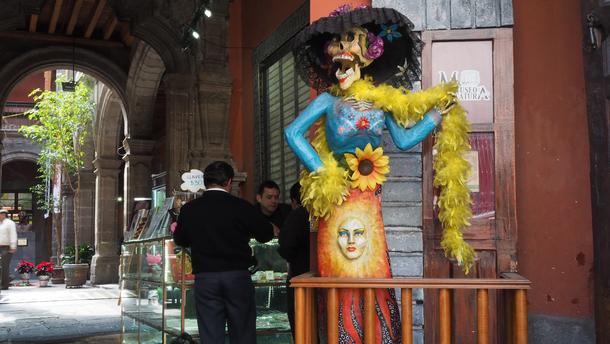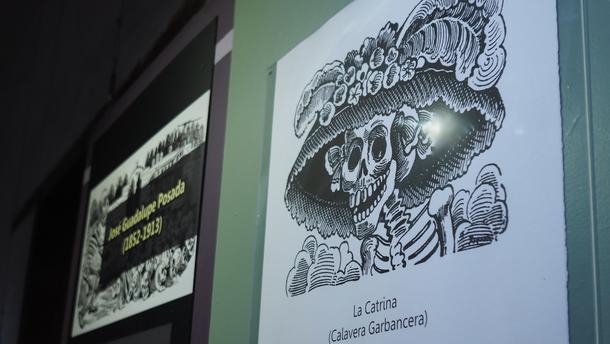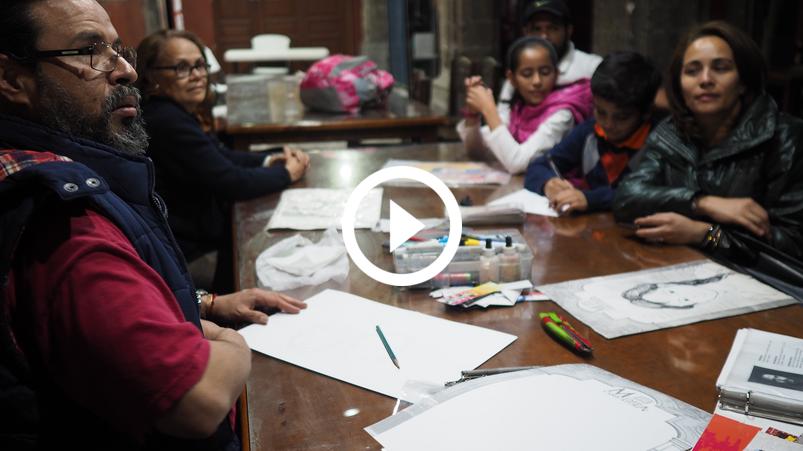Donaldo Trump en el Museo de Caricaturas
Donaldo Trump en el Museo de Caricaturas
Log into your Vimeo account to see the video.
It came as a surprise to most Mexicans when Donald Trump won the elections in 2016 and that constructing a wall along the US border with Mexico would be seriously discussed. But Mexico is not unfamiliar with adversity and replied with the same weapon that has led to the fall of many a tyrant: humour and satire.
Hear a caricaturist at the Museum of Caricatures in Mexico City tell about the relation between Mexico and United States and how a caricaturist find inspiration for, amongst others, the caricatures of 'Donaldo Trump'.
Vocabulario al vídeo
- Sustantivos
EEUU
cabra f
campaña f
caricatura f
contradicción f
discurso m
elección f
exposición f
ladrillo m
muro m
resentimiento social m -
victoria f
Verbos
abrir
construir
dedicar
definir
dibujar
durar
ganar
pagar
pasar
sorprender - Adjetivos y otros
aberrante adj
agresivo adj
chusco adj
crítico adj
dependiente adj
divertido adj
fácil >< difícil
loco adj
principal adj
reaccionario adj
temático adj


La Catrina
Mexico has a long and proud tradition of caricature drawing and making fun of anything, so of course Death and the vanity of human beings are also a topic for caricature.
The figure of La Catrina, or La Calavera Garbancera as the figure was originally called, was created by the artist José Guadalupe Posada and later named by the famous muralista Diego Rivera who painted her, amongst others, in Una tarde dominical.
The figure first served as an illustration for satirical articles at the time of the Mexican Revolution (1910-1920), as a satire over wealth and human vanity (an elegant and well-dressed man was called a Catrín ).
La Catrina has gradually become an essential part of Mexican culture, not least as a symbol of Mexico's special relation to death, about which José Guadalupe Posada should have said:
La muerte, es democrática, ya que a fin de cuentas, güera, morena, rica o pobre, toda la gente acaba siendo calavera.
The caricature museum pays tribute to the old masters in their regular exhibition.
